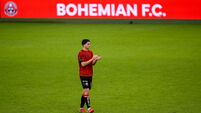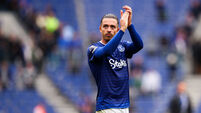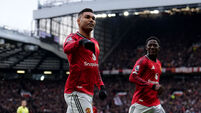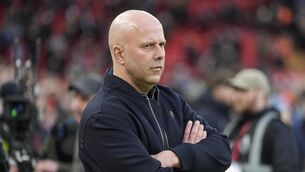Bringing it all back home
The big difference is that, back then, Kerr was the manager of Ireland. Now, he’s in charge of the Faroes, while a veteran Italian has the task of masterminding World Cup success for the Irish against the French. So, all changed, changed utterly, you might think. But as Kerr looks back and looks forward, there are times in his company when you really can’t help thinking that it’s not such a very long way from there to here.
IRELAND had made an encouraging start to their qualifying campaign for the 2006 World Cup, beating Cyprus 3-0 at home and drawing 1-1 away to Switzerland before they faced up to the French in Paris in October, 2004.














